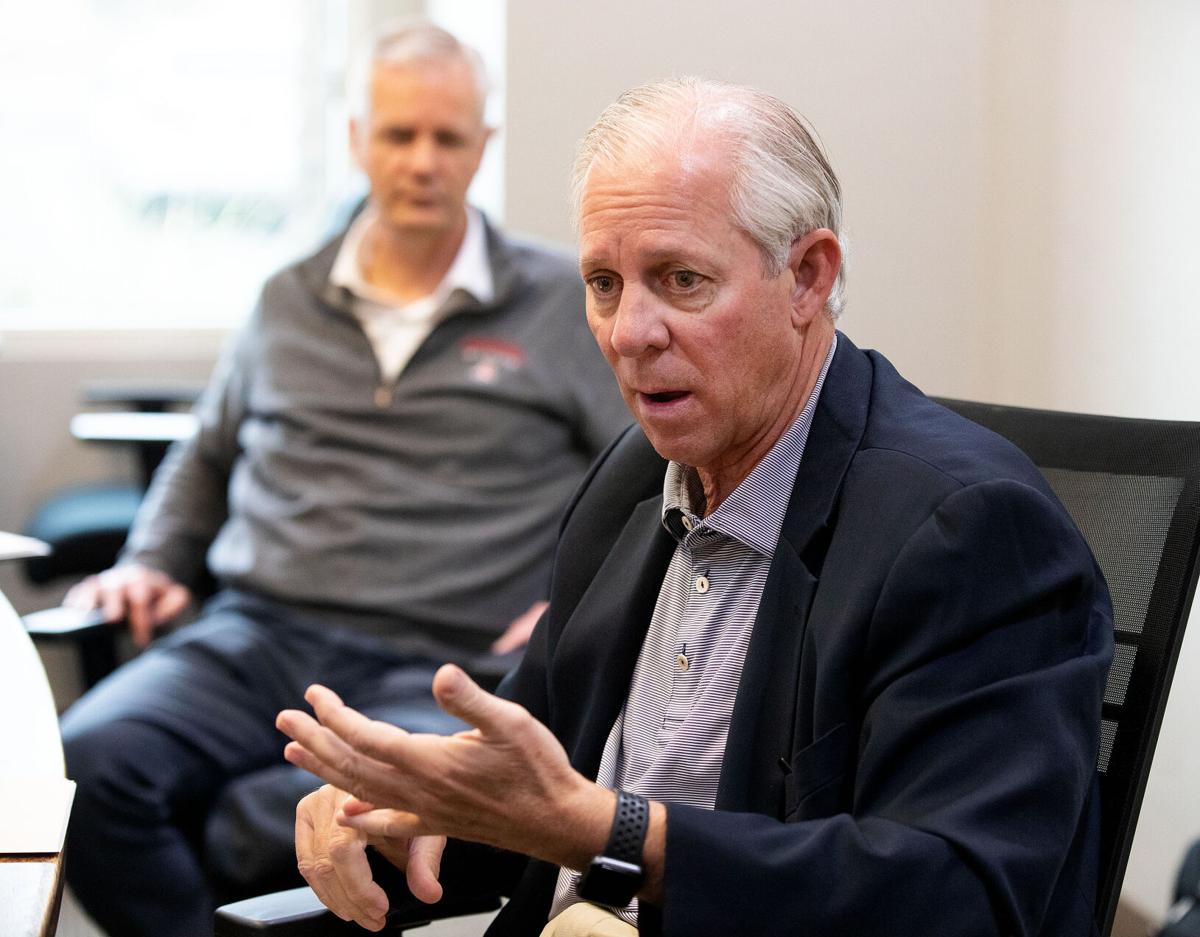Layoffs at the University of Arizona will occur in phases throughout this spring, UA Interim Chief Financial Officer John Arnold told staff this week.
The layoffs will begin with senior administration at the directive of UA President Robert C. Robbins, Arnold said.
“We’re not planning a big date where we’re going to announce layoffs,” Arnold said. “I think it’ll come in phases.”
Robbins told staff at the same meeting that there have been “conversations” about him potentially taking a salary cut himself. He previously told the Arizona Daily Star in an interview that he “absolutely” would take a pay cut amid the university’s $177 million deficit.
Arnold, Robbins and interim Provost Ron Marx spent an hour and a half answering questions and speaking to the UA Staff Council Tuesday afternoon.
Arnold said his team will go through every college’s budget request by mid-April. Fiscal year 2025 begins July 1.
“We’ll have to see (if they) can meet those expenditure targets within their existing staff and faculty or if we are going to have to reduce some positions,” he stated.
Gov. Katie Hobbs, who has been highly critical of the handling of UA’s financial situation, had asked leaders of UA and the Arizona Board of Regents to meet privately with her on Tuesday afternoon after releasing a fiery statement Monday demanding they “come down from their ivory tower.”
Hobbs agreed to meet next week rather than Tuesday after she found out that Arnold and Robbins were scheduled to speak with the Staff Council, Arnold said.
Robbins said he has been in “constant communication” with Hobbs’ office, while Arnold stated there appeared to be some “miscommunications and misunderstandings” with the governor.
Investing in academic units?
Arnold stated he’s not in favor of “ranking” different departments and colleges based on how much money they bring in.
“If we just rank them in order of which divisions and departments are making money and those at the bottom that aren’t making money are going to go away, there wouldn’t be a lot left,” he said. “And we would end up eliminating some of the programs that are core to the identity of the University of Arizona.”
He said judgements will be based more on “value” than finances.
“Certainly, we need to be aware of how any cutback is going to impact the flow of revenue into the university and we will certainly make these calculations,” he said. “But we also have to be aware of where our values are; what are the programs we want to have as a university?”
Robbins interjected, and acknowledged he hadn’t first asked Arnold what he was about to propose at the meeting.
“Could there be a short-term income investment?” Robbins asked, implying that “units that had reserves” could provide for “those who weren’t doing as well.”
“There are many units that are in deficit that have been under-resourced for years,” he said. “Even if the unit is in structural deficit, maybe they just need investment of more resources instead of cuts.”
Marx echoed Robbins’ statements.
“There are some programs that have high social value, high educational value, that we just really need to do because that is what it means to be a university,” the interim provost said. “That being said, we have to be able to figure out how to pay the cost of those kinds of programs.”
But, while the team figures out the budget and new roles of employees, Arnold said “there may be a period where you’re asked to do a little bit of extra stuff.”
There will be a process this summer, he added, to “really look at our staffing structures to make sure we have appropriate staffing levels.”
Centralizing and modernizing
Melanie Madden, the chair of the Staff Council, told the leadership present that the current centralization efforts were “unsettling” to staff, as most believe their jobs are being “treated as low value and disposable.”
In response, Arnold, who is leading efforts to centralize offices such as information technology and human relations, said the process is under way “not because we don’t value you, (but) because we value you so much.”
Centralizing HR, he said, will “build out this really powerful, well trained, well developed, very professional class of employees that can help us run the university in a professional and modern way.”
Arnold seemed to place blame for some of the financial deficit onto the university’s HR systems.
“A lot of the financial difficulties we’ve run into is because of decentralized HR personnel-related decisions,” he said.
“The IT system that they’re functioning under is 142 years old,” Arnold said. “Most of them cost $100 million to replace. We’re doing our best but we need to modernize our tools around the university.”
One of those modernizations might be changing the way the UA bills its students.
“Do you know we are still sending a paper bill to every single student and their family?” he asked the audience. “Every single one.”
Get your morning recap of today's local news and read the full stories here: tucne.ws/morning





